We use cookies to make your experience better. To comply with the new e-Privacy directive, we need to ask for your consent to set the cookies. Learn more.



I’ve always loved shooting portraits, and the first medium format film I used was ILFORD HP5+, shooting portraits in high school with the Rolleiflex TLR that I still use today. It was the perfect film to learn with — forgiving and rewarding. When I started directing music videos in my 20s, I brought that Rollei to set to take press photos between set ups. Around the same time, I was working as Ava DuVernay’s director’s assistant on the Netflix series When They See Us. Our unit stills photographer was Atsushi Nishijima, a brilliant photographer who shoots on set stills on films for everyone from Ava to Yorgos Lanthimos to Greta Gerwig. Watching Jima, I realized that shooting on set stills is an incredibly specific challenge, and I wanted to explore its mix of documentary and portraiture.
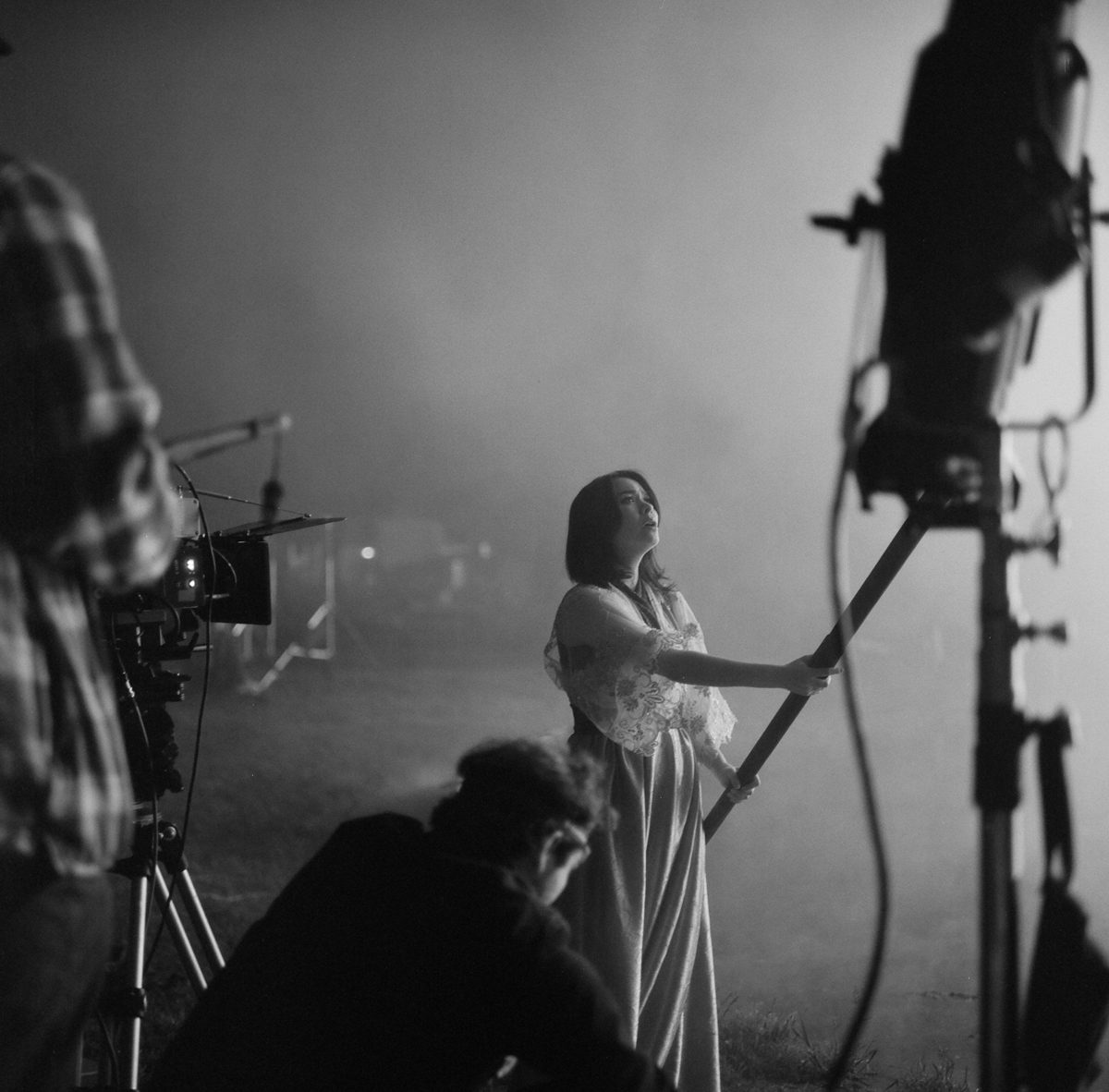
Soon after, I started taking BTS/press stills on music video shoots. I love the unique technical constraints of shooting on set stills: you have to be nimble, adapting to production constraints and taking advantage of every opportunity to step in and capture photographs, while also being emotionally sensitive to the flow of shooting. You often have a long list of assets to capture, but little time to grab them and little control over your lighting conditions.
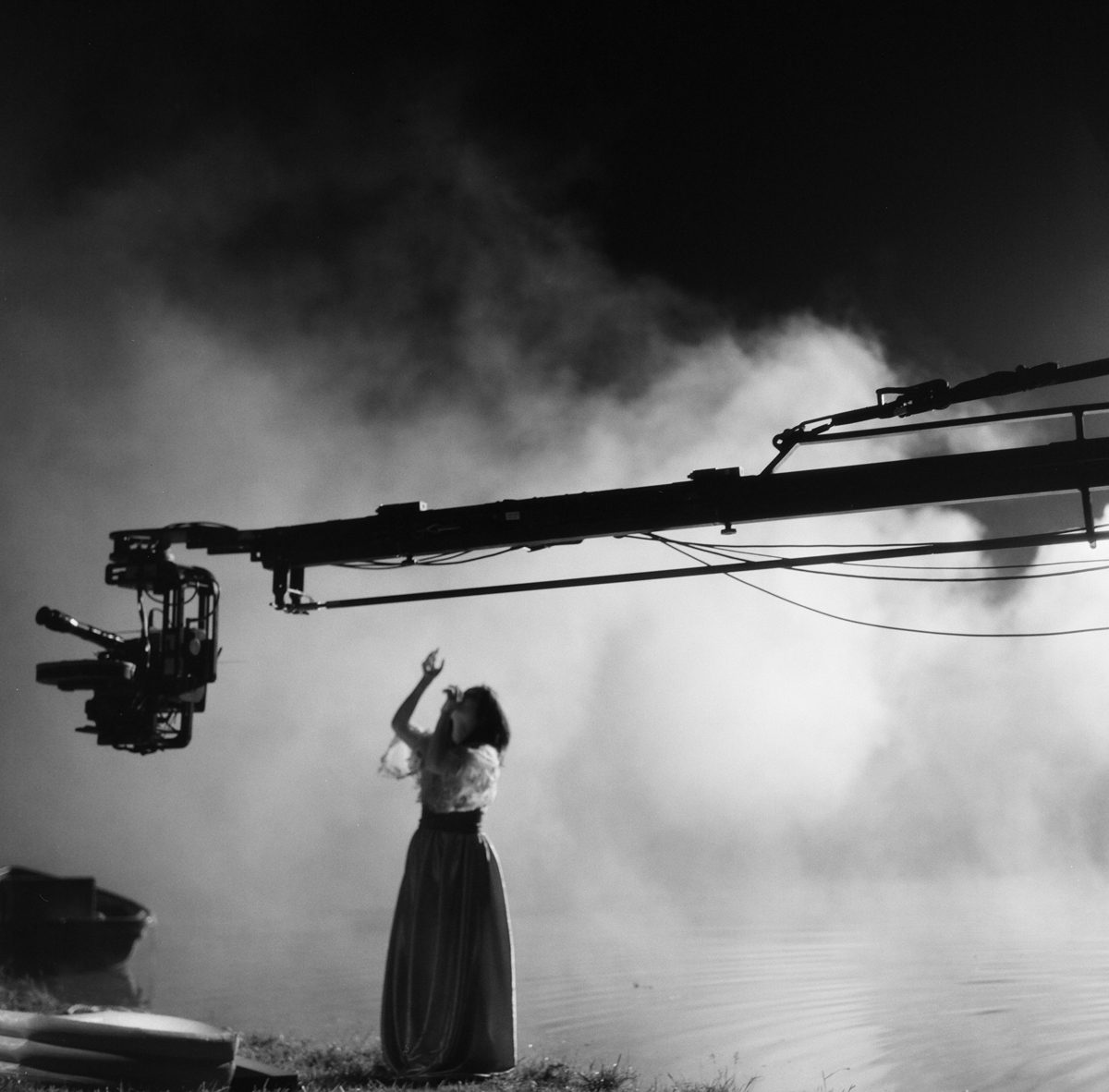
On Mitski’s “Star” music video, director Maegan Houang, DP Chris Ripley, production designer Terry Watson and I have been on set together for nearly a decade, so we have a strong shorthand for how Maegan and the rest of the team are thinking about the look of the video. Since Maegan and Chris had decided to shoot the video on B&W VistaVision, I pitched shooting B&W film stills to match.
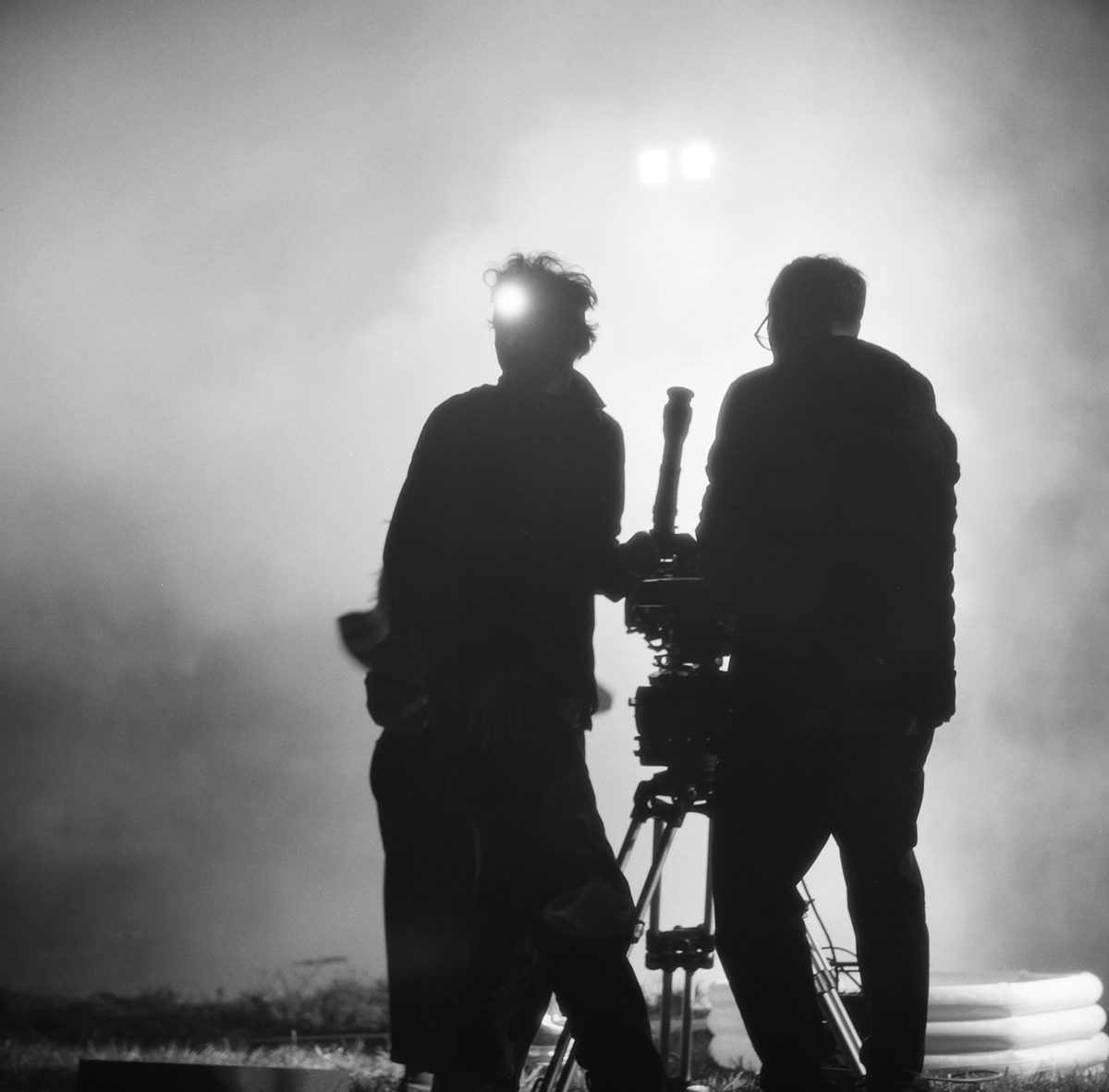
Photographing a mix of 35mm and 120 stills is always my preferred workflow, though I’m usually asked to capture a mix of film and digital stills. When you’re photographing over a long shoot day, it can be tempting to take hundreds of generic photos, but shooting on film encourages thoughtfulness about shot selection and keeps me attuned to the most important moments in the day to capture. Being specific about your shot selection also helps develop trust and intimacy with the performers you’re photographing – you’re more deliberate about when to step in and shoot, and when to give them space to stay in the moment between takes. Mitski is extremely emotionally present while performing, and shooting on film allows the crew to maintain a similar level of presence and intention.
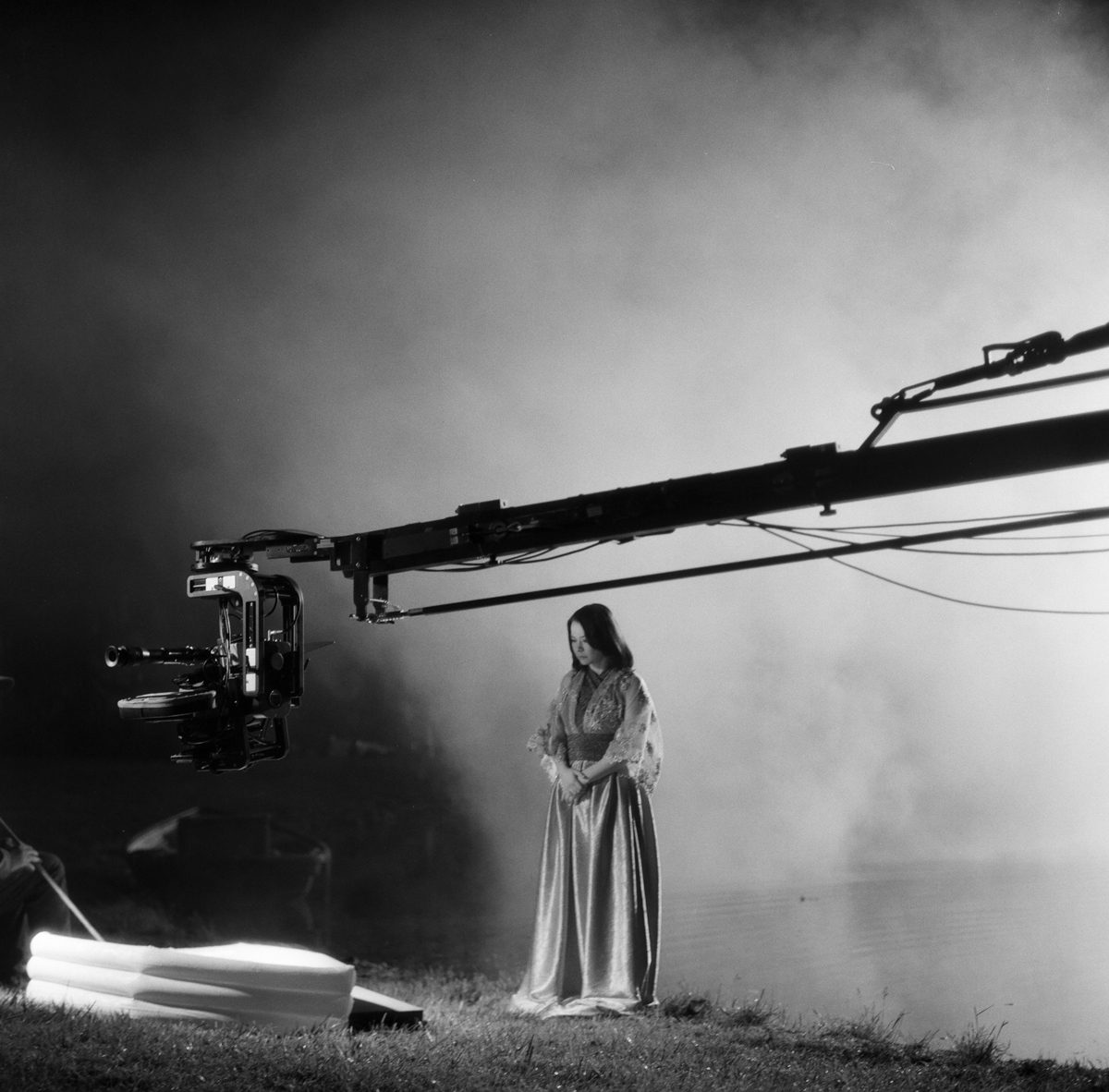
Since “Star” was a night shoot, I knew I’d need a super fast film stock to photograph in potentially low lit conditions. Luckily, Delta 3200 is one of my absolute favorite stocks to shoot on. Every time I get the film back, I’m amazed at the amount of detail it captures and how it maintains a gorgeous, fine grain compared to other stocks at similar speeds.
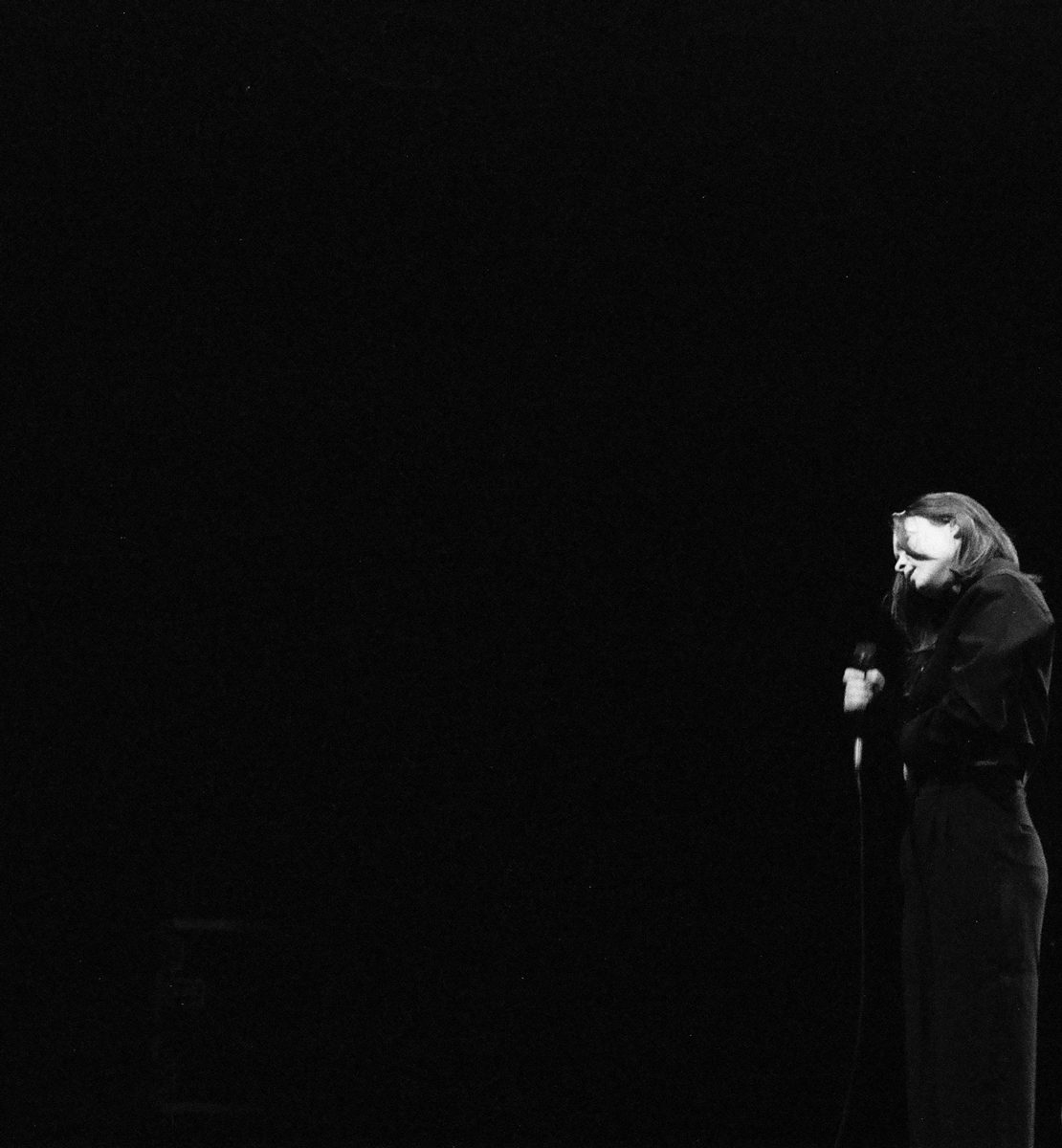
I brought my trusty Rollei TLR to shoot medium format and my Leica M6 to shoot 35mm. Loading both with Delta 3200 allowed me to maintain a consistent look across formats — which also helped give me a reference for the additional digital video & stills I captured.
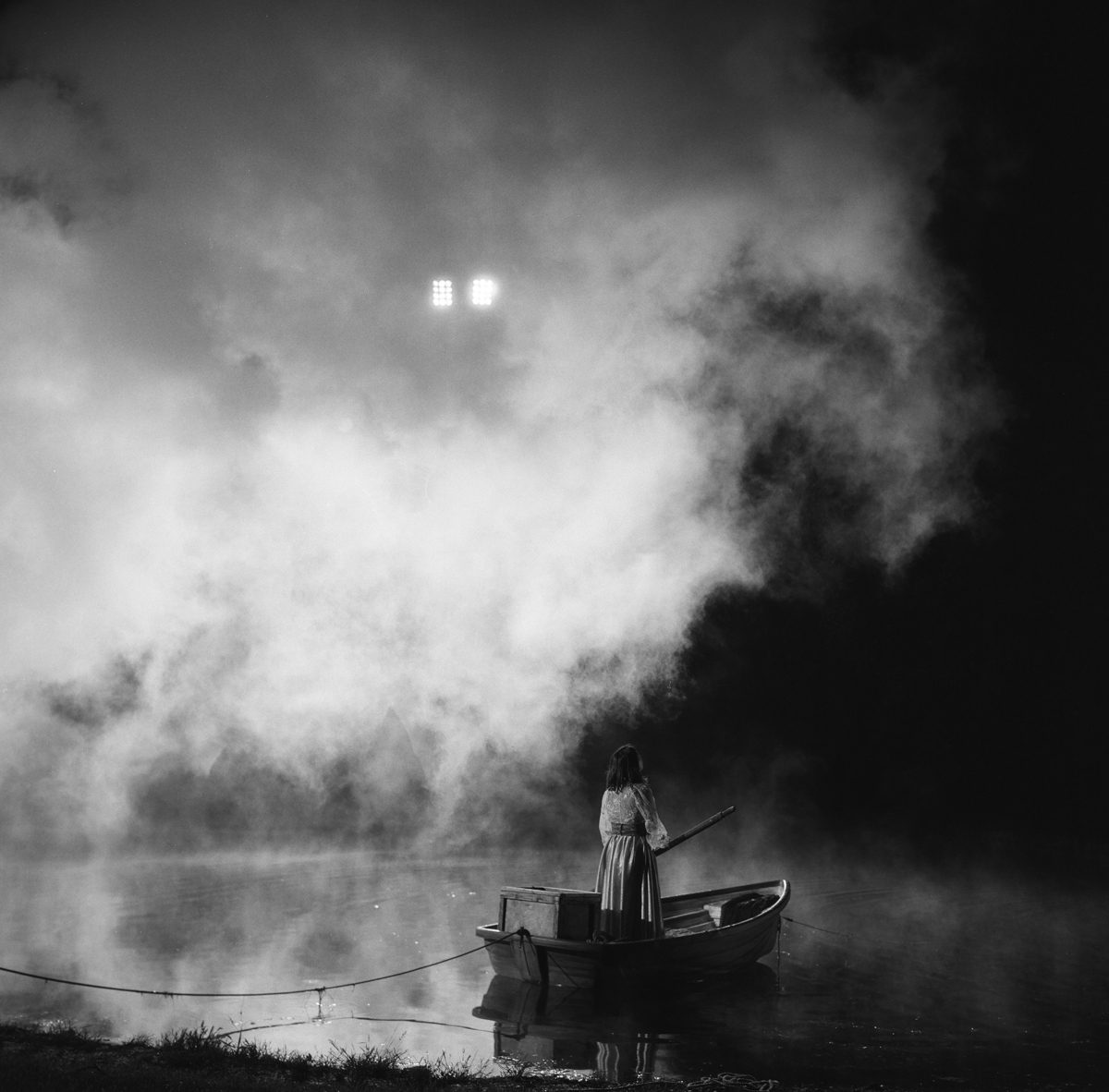
The billowing clouds of atmos hanging over our lake location provided a gorgeous backlight to frame Mitski against. Since we were working in a single location with a limited number of onscreen elements, I had the luxury of being able to really explore a single subject over the course of the night.
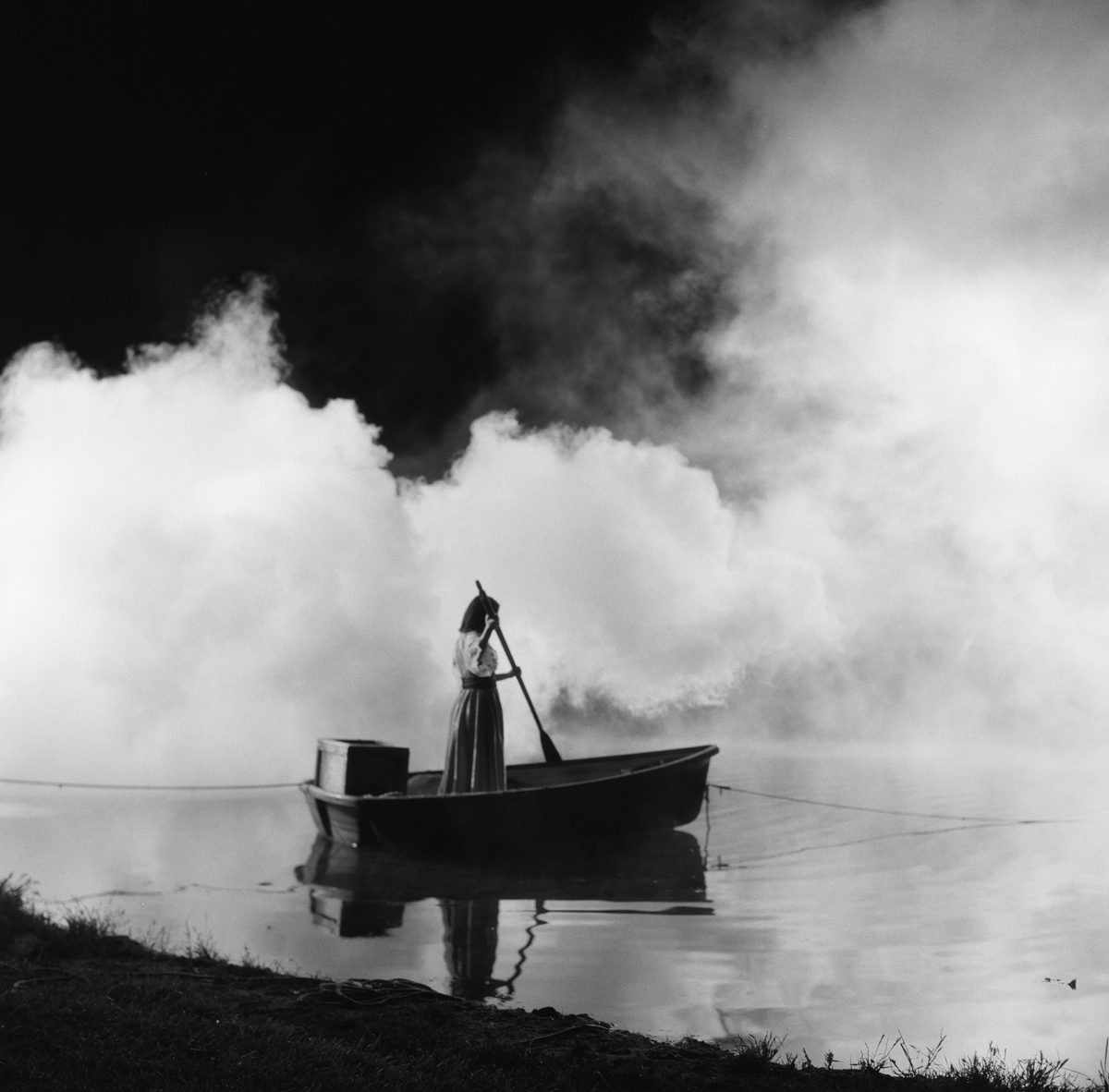
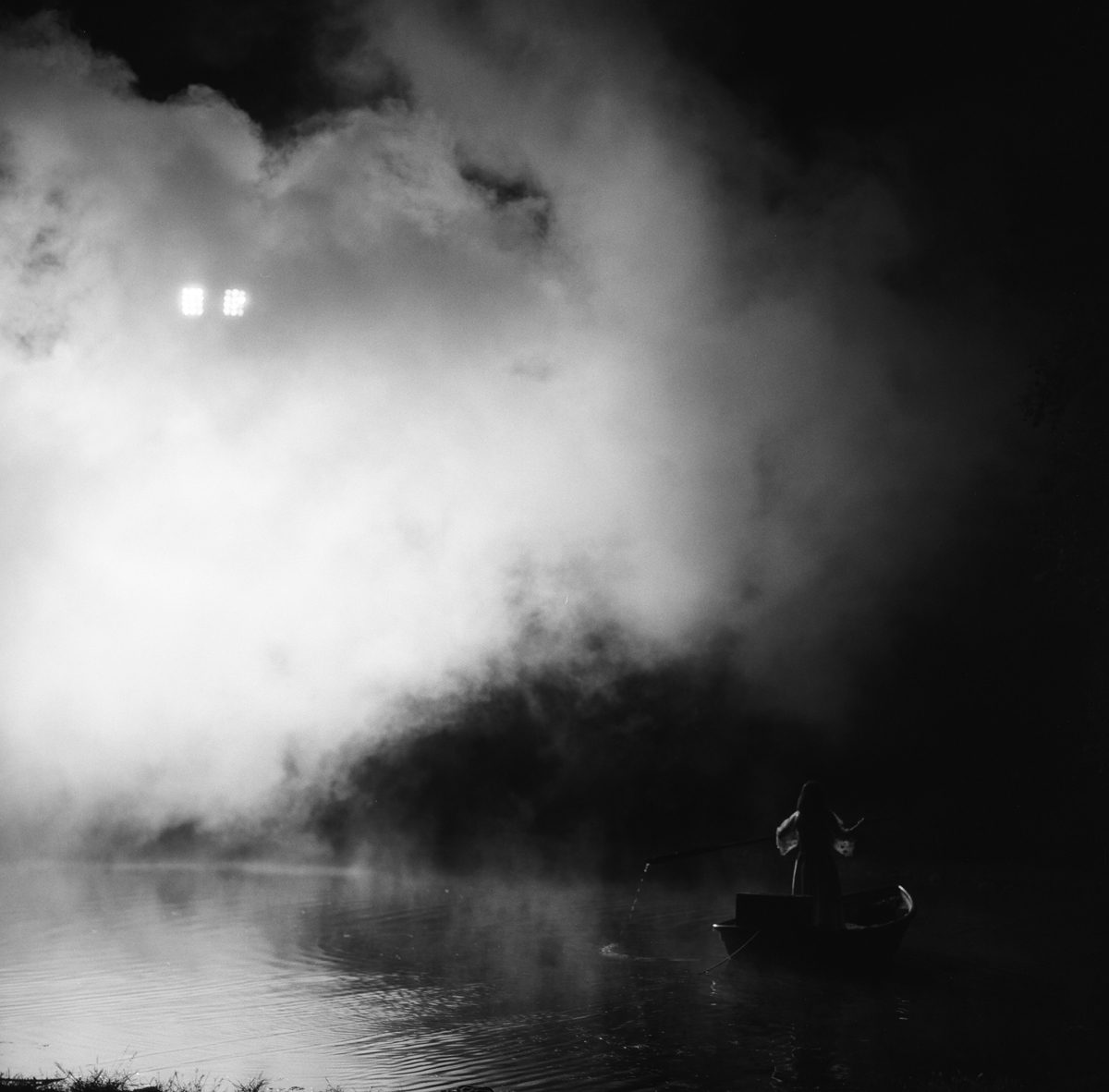
Shooting BTS stills is always a reminder that film is a collaborative medium. The wonderful production designer of “Star”, Terry Watson, had her department build movable, hand-painted mountains to direct light at the lake edge. Her attention to detail is always so moving, and I was glad I got to capture some close ups of her team’s meticulous work.
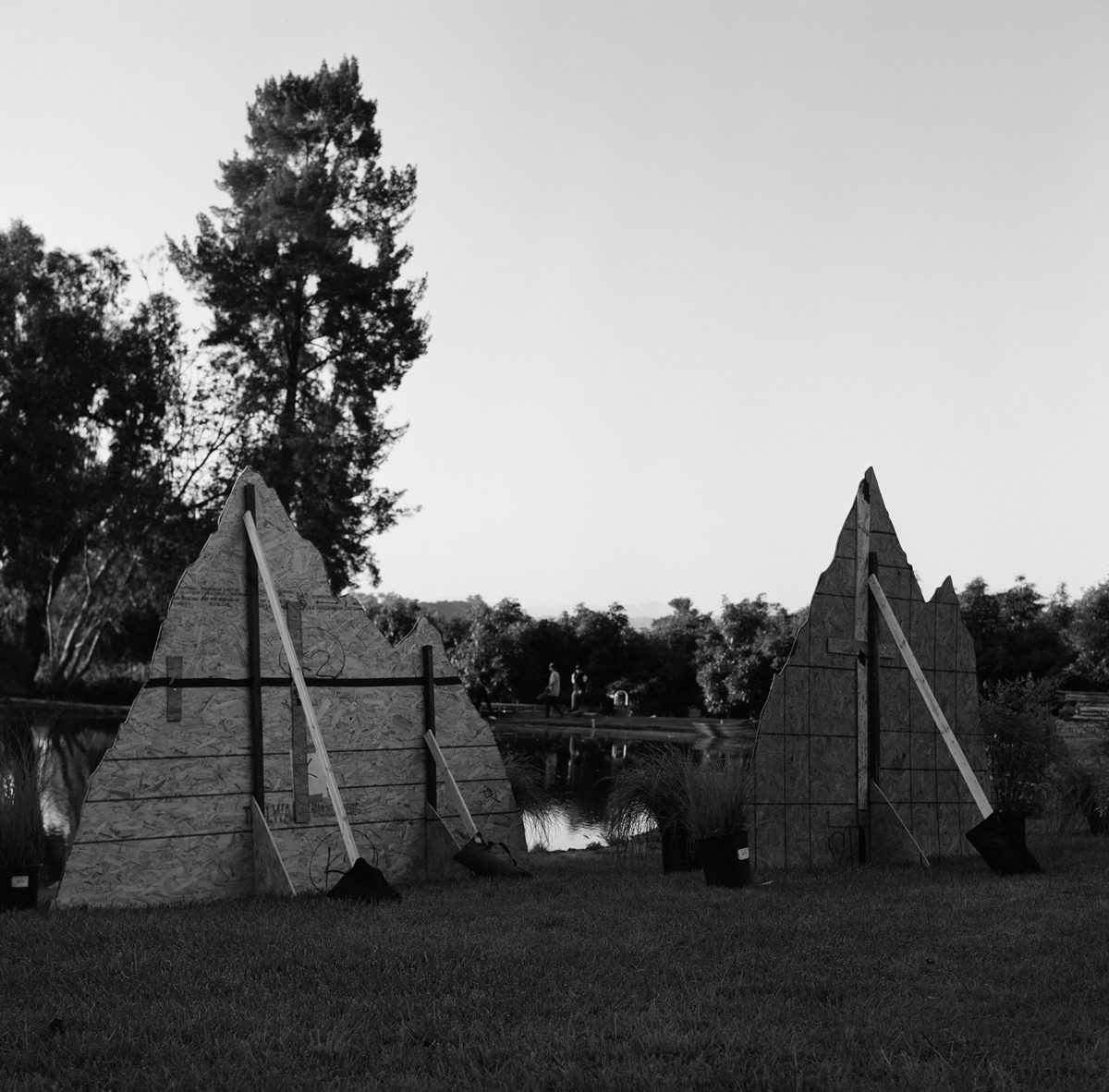
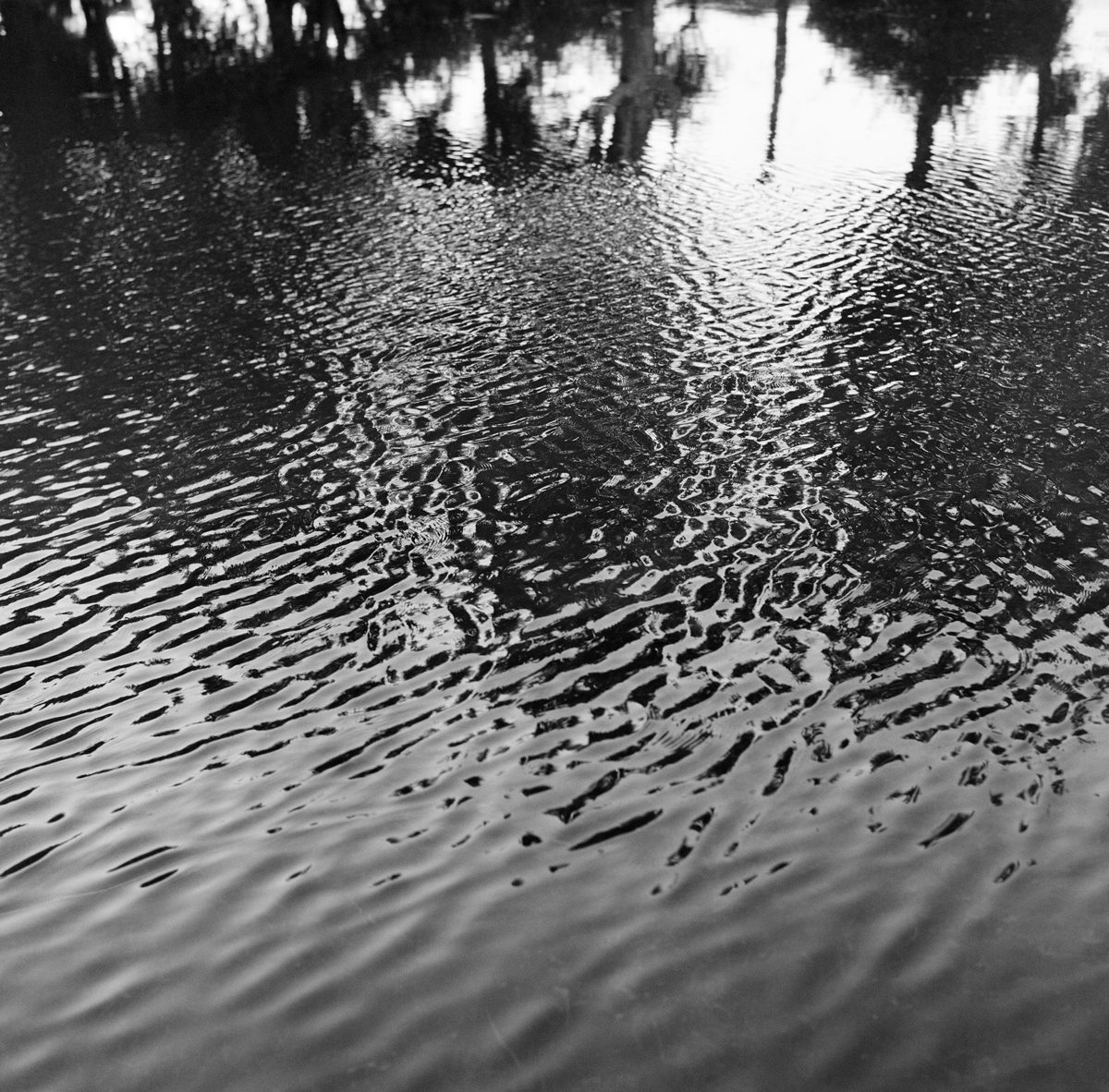
Mitski’s team also commissioned me to take film stills of her concert at the Ace Theatre last fall. Delta 3200’s range is insane — even when shooting Mitski dressed in black on a dark stage, it managed to capture beautiful details and texture in the shadow. For that show I mostly shot on my Leica M6 with a Winder M attachment, which allows me to shoot quickly while photographing live performances.
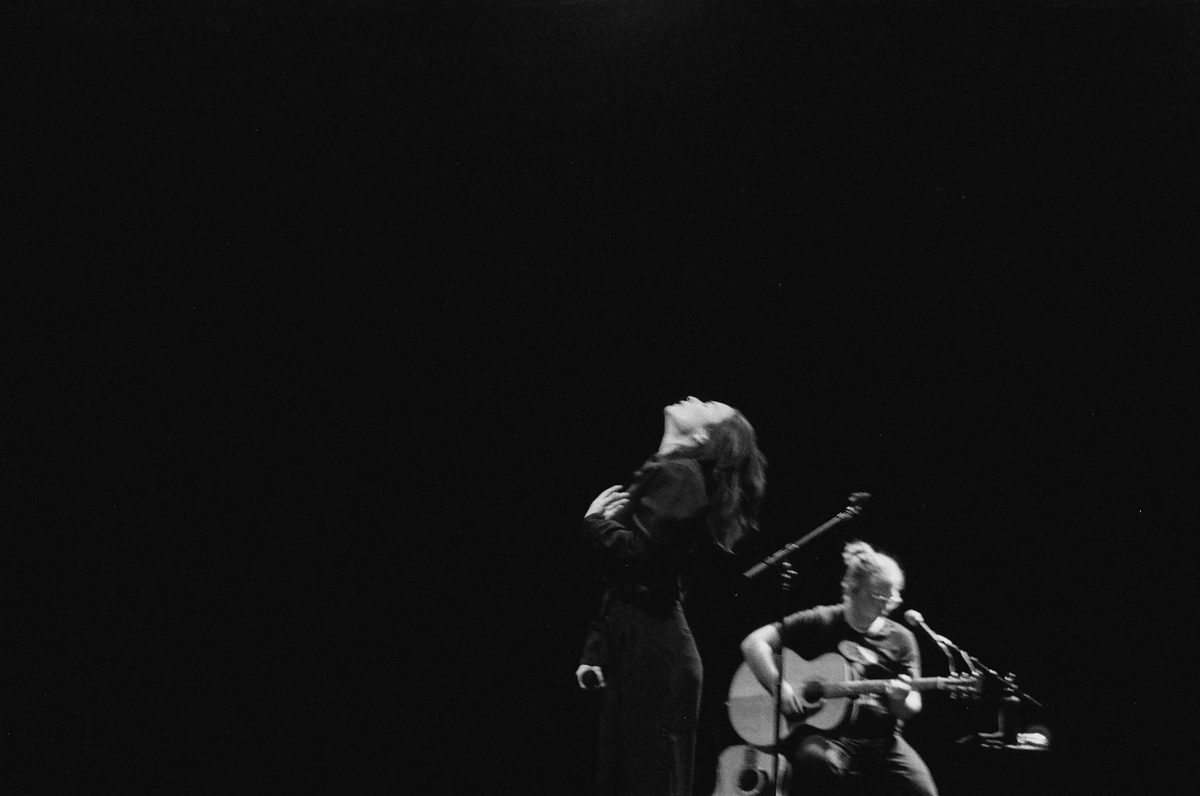
Whether I’m shooting portraits, BTS, or concert stills, I always have Delta 3200 in my kit. It’s definitely the B&W stock I use the most in both my professional and personal projects. My friends know me well enough that at this point, I get a bundle of ILFORD film for my birthday.
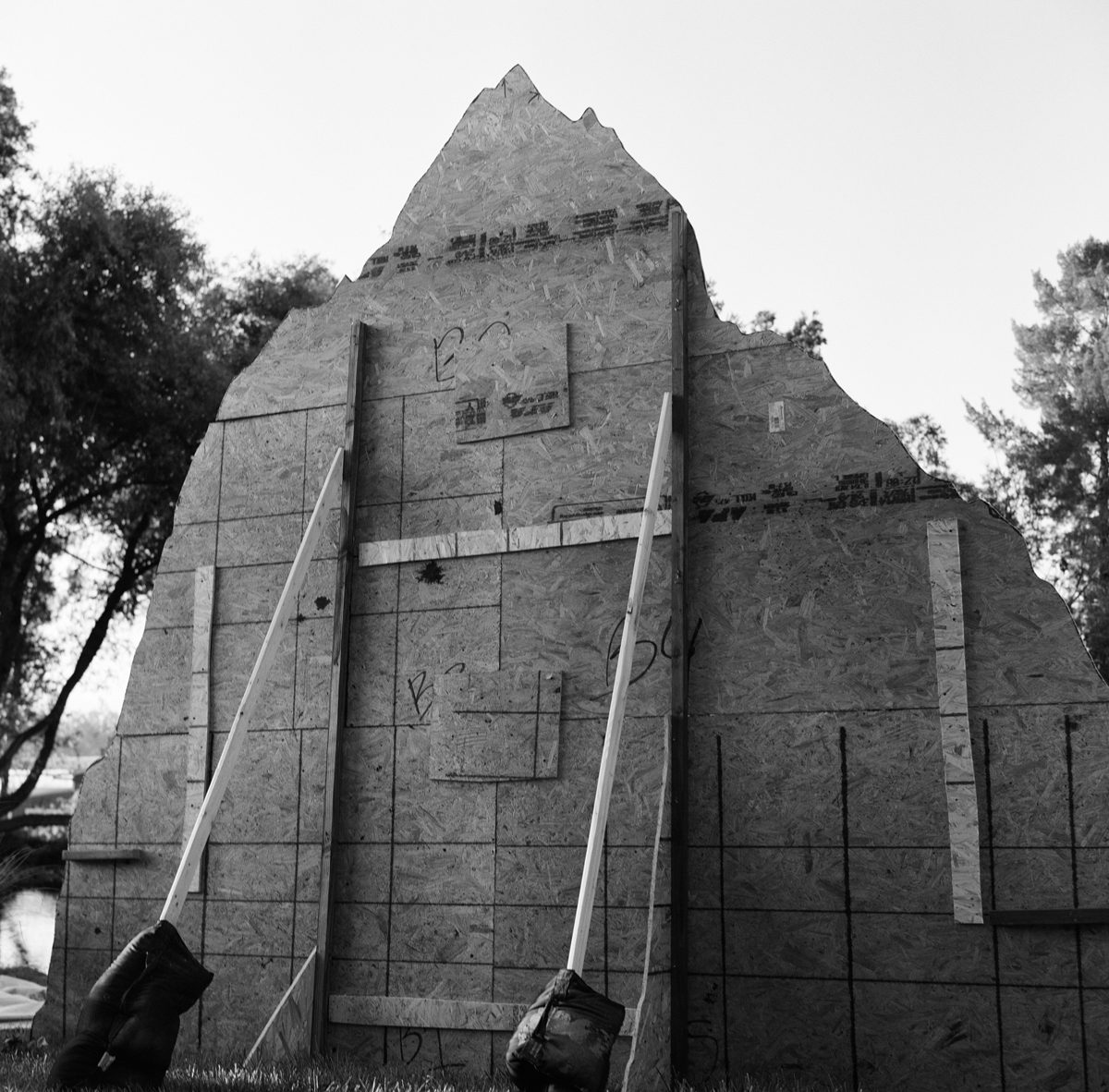
As I gear up to direct my first narrative short film later this year, I’m starting to think about the accompanying film stills I’d like to capture. I’ll definitely be bringing my still camera to set, along with a bundle of 3200.
Images ©Hannah Claire Baker

Hannah Claire Baker is a NY/LA-based writer, director, and photographer. Her photography and directing work has been featured by The Tonight Show with Jimmy Fallon, Teen Vogue, Kodak, BOOOOOOOM, Billboard, Colors, Rolling Stone, VH1, Bandcamp, and more. Prior to her work as a writer-director, Hannah assisted Academy Award winning/nominated filmmakers Ava DuVernay, Chivo Lubezki, and Drew Goddard. She is currently developing her debut feature script and was awarded a 2019 fellowship at the Hedgebrook Screenwriting Lab.
Website: www.hannahclairebaker.com
Instagram: www.instagram.com/hammah_baker